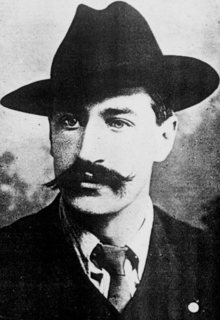A Quote by Pope Francis
There is a danger that threatens everyone in the church, all of us. The danger of worldliness. It leads us to vanity, arrogance and pride.
Related Quotes
All of us in this country give lip service to the ideals set forth in the Bill of Rights and emphasized by every additional amendment, and yet when war is stirring in the world, many of us are ready to curtail our civil liberties. We do not stop to think that curtailing these liberties may in the end bring us a greater danger than the danger we are trying to avert.
Where danger shews it self, apprehension cannot, without stupidity, be wanting; where danger is, sense of danger should be; and so much fear as should keep us awake, and excite our attention, industry, and vigour; but not to disturb the calm use of our reason, nor hinder the execution of what that dictates.
At this time of crisis we cannot be concerned solely with ourselves, withdrawing into loneliness, discouragement and a sense of powerlessness in the face of problems. Please do not withdraw into yourselves! This is a danger: we shut ourselves up in the parish, with our friends, within the movement, with the like-minded... but do you know what happens? When the Church becomes closed, she becomes an ailing Church, she falls ill! That is a danger. . . .A Church closed in on herself is the same, a sick Church.
Pride... is a very common failing, I believe. By all that I have ever read, I am convinced that it is very common indeed; that human nature is particularly prone to it, and that there are very few of us who do not cherish a feeling of self-complacency on the score of some quality or the other, real or imaginary. Vanity and pride are different things, though the words are often used synonymously. A person may be proud without being vain. Pride relates more to our opinion of ourselves, vanity to what we would have others think of us.
There is a subtle danger that leads people away from religion, prevents them from submitting to God as their Lord, and ultimately, brings numerous other forms of trouble and distress upon them. This danger is ROMANTICISM, which leads people to live, not according to their reason, but according to their emotions; that is, according to their desires, hatreds, their susceptibility to temptations and their whims.



































